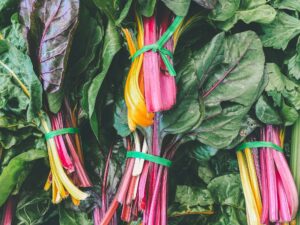In today’s fast-paced world, where health often takes a backseat due to our busy schedules, the role of diet in maintaining our well-being has never been more crucial. Among various health concerns, chronic inflammation stands out as a significant factor that can influence our well-being. This duality of inflammation—essential for healing yet potentially harmful when chronic—underscores the critical importance of dietary choices. Indeed, the food we consume plays a pivotal role in either exacerbating or alleviating inflammation. Integrating anti-inflammatory diet into our diet emerges as a practical and effective strategy to manage and mitigate the effects of chronic inflammation.
Through a careful selection of these foods, we can not only address specific health concerns but also pave the way for a vibrant and disease-free life. The quest for the most anti-inflammatory meal is more than a culinary challenge; it’s a journey towards enhanced health and longevity.
Understanding Inflammation
Inflammation acts as the body’s alarm system, a necessary call to action in response to perceived threats. This process, vital for our survival, can be categorized into two types: acute and chronic. Acute inflammation is immediate, a crucial part of the healing process that signals the body’s attempt to recover and repair. However, when inflammation lingers and becomes chronic, it remains undetected until it manifests as part of various diseases, marking a shift where the immune response, rather than protecting, starts to inflict damage.
Chronic inflammation is intricately linked to a slew of health issues, underscoring the importance of managing it effectively. Diet plays a key role in this management. Foods known as pro-inflammatory, such as refined carbohydrates, fried foods, sugary beverages, and red and processed meats, can trigger or worsen inflammation. Conversely, a diet rich in anti-inflammatory foods serves as a powerful tool in reducing inflammation levels, containing antioxidants, phytonutrients, and omega-3 fatty acids known for their ability to dampen inflammatory processes.
Understanding the dietary impact on inflammation is pivotal for managing and potentially reducing the risk of associated health issues. By emphasizing the consumption of whole, nutrient-dense foods while minimizing the intake of processed and unhealthy options, individuals can significantly impact their health trajectory, making informed dietary choices essential in the fight against chronic inflammation.
The Science Behind Anti-Inflammatory Diet
Delving into the science behind anti-inflammatory foods unveils why certain foods can combat inflammation more effectively than others. The body’s inflammatory process is complex, involving various cellular responses and the release of specific cytokines and enzymes that can lead to inflammation. However, foods rich in antioxidants, omega-3 fatty acids, and polyphenols possess unique properties that help counteract these inflammatory responses.
- Antioxidants play a crucial role in neutralizing free radicals, molecules that can cause oxidative stress and inflammation in the body. Foods high in antioxidants, such as berries and leafy greens, provide a protective effect against cellular damage.

- Omega-3 fatty acids, found abundantly in fatty fish like salmon and mackerel, are essential for reducing the production of molecules and substances linked to inflammation, such as eicosanoids and cytokines.
- Polyphenols have been shown to have a potent anti-inflammatory effect by inhibiting inflammation-inducing enzymes. This group of compounds is abundant in foods like green tea, olive oil, and dark chocolate.
Incorporating a variety of these anti-inflammatory foods into your diet can significantly reduce inflammation levels, offering protection against chronic diseases. It’s the synergy of these nutrients within whole foods that maximizes their anti-inflammatory potential, making a well-rounded diet essential for health and wellness.
Popular Anti-Inflammatory Diet
Assembling the ultimate anti-inflammatory meal requires careful selection of foods renowned for their potent anti-inflammatory properties. Each ingredient serves a dual purpose: reducing inflammation and enhancing overall health vitality.
- Berries: These small, yet mighty fruits, including strawberries, blueberries, and raspberries, are treasure troves of antioxidants and essential vitamins. They play a critical role in quelling inflammation and reducing the risk of chronic diseases.
- Fatty Fish: Sources of omega-3 fatty acids like salmon and sardines are invaluable for their ability to lower inflammation markers. These fatty fish are not just heart-healthy; they are warriors against inflammation, offering protection from cardiovascular diseases and contributing to overall health optimization.
- Leafy Greens: The vibrant hues of spinach and kale signal their dense nutritional profile, loaded with antioxidants and minerals. These leafy greens are instrumental in combating inflammation and oxidative stress, serving as cornerstones in the construction of an anti-inflammatory diet.

- Nuts: Almonds and walnuts are more than just snacks. Overall, they are packed with healthy fats, fiber, and vitamin E, all known for their anti-inflammatory benefits.
- Olive Oil: Celebrated as a key component of the Mediterranean diet, extra virgin olive oil is rich in oleocanthal, an antioxidant with effects akin to anti-inflammatory drugs. Its use in cooking and dressings adds not just flavor but also a significant health boost, mirroring the benefits of over-the-counter anti-inflammatory solutions without the side effects.
This meal is not just a feast for the senses; it’s a comprehensive approach to fighting inflammation through diet. It exemplifies how an anti-inflammatory meal can be both a pleasure to eat and a beneficial choice for long-term health. Through thoughtful ingredient selection and preparation, individuals can enjoy delicious meals that actively contribute to their well-being, reducing inflammation and enhancing their quality of life.
Building the Ultimate Anti-Inflammatory Meal
To maximize the benefits of an anti-inflammatory diet, understanding how to combine these powerful foods into a single meal is key. An ideal anti-inflammatory meal not only focuses on incorporating foods with high anti-inflammatory potential but also considers preparation methods that preserve or enhance the bioavailability of beneficial compounds.
- Start with a base of leafy greens, such as spinach or kale, to ensure a high intake of vitamins and antioxidants.
- Add a serving of fatty fish like salmon or mackerel for a dose of omega-3 fatty acids, grilling or baking the fish to avoid introducing unhealthy fats.
- Incorporate a variety of berries as a side or dessert to boost your intake of anthocyanins and fiber.
- Include a handful of nuts such as almonds or walnuts for additional healthy fats and vitamin E.
- Dress salads or dishes with extra virgin olive oil and add spices like turmeric and ginger, both known for their potent anti-inflammatory properties, to enhance flavor and health benefits.
This meal not only delivers a multitude of nutrients and antioxidants but also engages the palate with diverse flavors and textures, making eating for health a delightful experience.
The Role of Spices and Herbs as Anti-inflammatory Diet
Enhancing your meals with a variety of spices and herbs not only elevates the flavor profile but also significantly amplifies the anti-inflammatory benefits of your diet. Among the myriad of spices available, turmeric and ginger emerge as two powerhouses with notable health-enhancing properties.
The Power of Turmeric and Ginger in Fighting Inflammation
Turmeric’s Magic Ingredient: Curcumin:
- Turmeric is celebrated for its active ingredient, curcumin, renowned for its potent anti-inflammatory and antioxidant capabilities.
- The challenge with curcumin lies in its bioavailability. Combining turmeric with black pepper, which is rich in piperine, remarkably enhances curcumin’s absorption, potentially by 2,000%. This synergy not only boosts curcumin’s efficacy but also maximizes the anti-inflammatory impact of your meals.
Ginger’s Role in Alleviating Inflammatory Conditions:
- Ginger, with its active component gingerol, stands as a powerful ally against inflammation.
- Research highlights ginger’s effectiveness in mitigating inflammation associated with various conditions, including arthritis, digestive ailments, and compromised immunity. Its broad-reaching benefits underscore ginger’s versatility and potency in an anti-inflammatory diet.
Incorporating Turmeric and Ginger into Your Diet
To harness the full potential of these spices, consider incorporating them into your diet through various means:
- Add turmeric and black pepper to smoothies, curries, and soups for a healthful twist.
- Infuse ginger into teas, dressings, or marinades to benefit from its anti-inflammatory properties.
- Explore supplements if dietary inclusion is challenging, ensuring they contain piperine for turmeric or are standardized for active compounds in ginger.
By integrating turmeric and ginger into your daily meals, you’re not just adding flavor; you’re infusing your diet with substances capable of combating inflammation and contributing to your overall health. This strategic approach to seasoning not only enhances the culinary experience but also aligns with a proactive stance towards wellness, leveraging nature’s bounty for optimal health outcomes.
Comprehensive Strategies for an Anti-Inflammatory Lifestyle
- Prioritize Hydration: Maintaining adequate hydration is fundamental for optimal bodily function and effectively managing inflammation. Water is indispensable in flushing out toxins that can contribute to inflammatory processes. Integrating herbal teas can offer added benefits, as many contain anti-inflammatory compounds. Opting for water and herbal teas over sugary or caffeinated beverages not only supports hydration but also contributes to an anti-inflammatory regimen.
- Consciously Avoid Inflammatory Triggers: An informed approach to eating involves recognizing and minimizing foods known to provoke inflammatory responses. Highly processed foods, items high in refined sugars, and trans fats possess properties that can exacerbate inflammation. Reducing consumption of these pro-inflammatory culprits is essential in fortifying the body’s defenses against inflammation. Emphasizing whole, unprocessed foods ensures a diet rich in natural anti-inflammatory agents.
- Embrace Mindful Eating Practices: The manner in which we consume our meals can influence our body’s inflammatory response. Mindful eating, focusing on the present moment and listening to the body’s hunger and satiety signals, can have a profound impact on digestive health and stress levels, both closely tied to inflammation. Slowing down to savor each bite not only enhances the eating experience but may also assist in preventing overeating, supporting digestive processes, and minimizing stress-induced inflammatory reactions.
Incorporating these comprehensive dietary habits alongside a focus on anti-inflammatory foods creates a robust framework for mitigating inflammation. Such an approach not only targets inflammation at its source but also fosters a nurturing environment for overall health and longevity. Adopting these strategies within an anti-inflammatory lifestyle can lead to significant improvements in well-being, empowering individuals on their journey towards a balanced and vibrant life.
The Impact of an Anti-Inflammatory Diet on Health
The adoption of an anti-inflammatory diet extends beyond immediate dietary changes, significantly impacting overall health and wellness. The shift towards consuming foods rich in antioxidants, omega-3 fatty acids, and phytonutrients has been linked with numerous health benefits:
- Reduction in Chronic Disease Risk: Consistently consuming anti-inflammatory foods has been shown to lower the risk of chronic diseases significantly. Conditions such as heart disease, diabetes, and cancer are less prevalent among those who adhere to an anti-inflammatory dietary pattern.
- Enhanced Mental Health and Cognitive Function: The impact of diet on mental health is profound. An anti-inflammatory diet may play a crucial role in improving mood, reducing the risk of depression, and enhancing cognitive functions, owing to the neuroprotective properties of many anti-inflammatory foods.
- Improved Longevity and Quality of Life: By reducing inflammation and the risk of chronic diseases, an anti-inflammatory diet can contribute to longer life expectancy and improved overall quality of life.
Testimonials from individuals who have experienced transformative health benefits after adopting an anti-inflammatory diet, alongside studies that underscore the effectiveness of such dietary patterns, highlight the powerful role nutrition plays in health and disease prevention.
FAQs
Addressing common questions can provide readers with additional clarity and motivation to explore an anti-inflammatory diet further:
Q: What exactly does an anti-inflammatory diet entail?
A: An anti-inflammatory diet involves consuming foods known to reduce inflammation, i.e., fruits, vegetables, fatty fish, and healthy fats. Additionally, it should be considered while minimizing the intake of processed foods, refined carbs, and unhealthy fats.
Q: How quickly can I expect to see benefits from following an anti-inflammatory diet?
A: While individual experiences may vary, some people report feeling benefits. These benefits include reduced pain and improved energy within a few weeks of adopting an anti-inflammatory diet.
Q: Can an anti-inflammatory diet help with autoimmune diseases?
A: Yes, many people with autoimmune conditions report symptom relief from following an anti-inflammatory diet. However, it’s essential to consult with a healthcare provider for personalized advice.
Q: Are there any foods that are surprisingly pro-inflammatory?
A: Yes, some foods that are generally considered healthy can be pro-inflammatory for certain individuals. Examples include nightshade vegetables for some people with arthritis. It’s important to listen to your body and adjust your diet accordingly.
Conclusion
Embracing an anti-inflammatory diet is not merely about selecting the right foods to combat inflammation; it represents a holistic approach to eating that emphasizes nutrient density, variety, and balance. This dietary strategy addresses the underlying causes of chronic inflammation. Also, it opens the door to a myriad of health benefits, from reduced disease risk to enhanced mental well-being and longevity.
By making informed choices about the foods, we can significantly influence our body’s inflammatory response and, consequently, our overall health. The journey towards an anti-inflammatory lifestyle is a personal one. However, it is undoubtedly paved with the promise of a healthier, more vibrant life.

